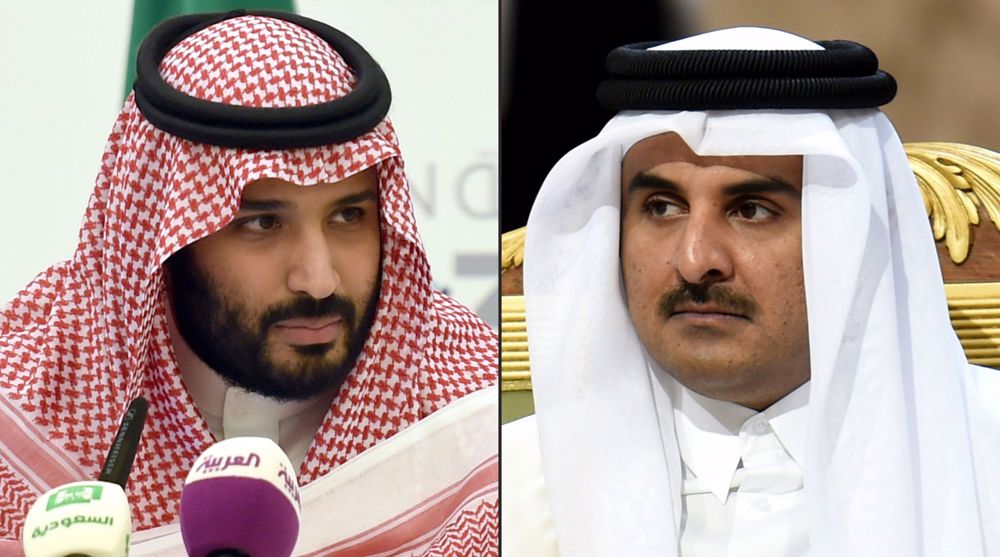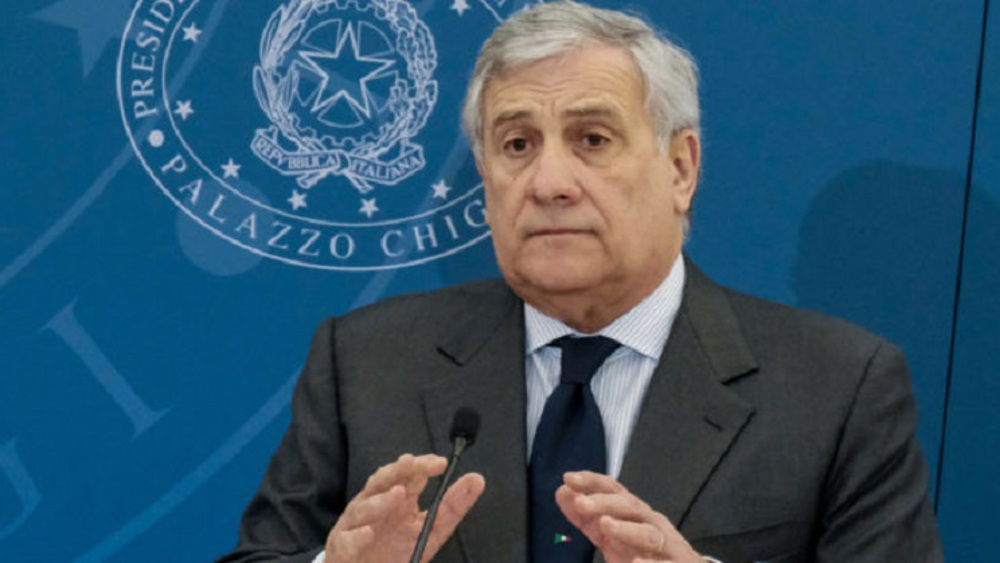KSA to lift land, air and sea blockade on Qatar
Saudi Arabia, in a U-Turn on its diplomatic course, has decided to lift its land, air and sea blockade on Qatar following more than three years of standoff between the two countries.
The decision was announced at a Persian Gulf Cooperation Council Summit held in the Saudi city of Al-Ula. Crown Prince Mohammad Bin Salman said the Kingdom signed a rapprochement agreement with Qatar, along with Oman and Kuwait.
The Prince, the de facto ruler of Saudi Arabia, hailed the agreement, saying the attending nations reaffirmed their Arab and Islamic solidarity and stability. He also thanked the United States and Kuwait for their mediation.
The deal however, seems to be pursuing nothing but an anti-Iran policy by Riyadh.
During the summit, MBS repeated the Kingdom’s anti-Tehran rhetoric, saying there was a desperate need to unite their efforts to what he called develop the West Asian region and confront challenges, especially those posed by Iran's nuclear and ballistic missile programs.
The Saudi-Qatari rapprochement comes more than three years after Riyadh, along with its regional hawks the United Arab Emirates, Bahrain and Egypt cut all their diplomatic and economic ties with Doha. They sealed their borders and expelled Qatari citizens from their countries.
They accused Doha of meddling in regional affairs and supporting terrorism. Qatar however, strongly rejected those allegations, arguing that it followed an independent foreign policy.
The boycotting countries then issued a list of 13 demands to Doha, including a downgrade in relations with Iran and the closure of the al-Jazeera television news network, in return for the reconciliation. Qatar did NOT publicly bow to any of their demands.
But what has really caused the Saudi regime to lift its blockade on Qatar and resettle relations with Doha at a time when US President Donald Trump, one of Saudi’s main backers in the international coalition against Iran is leaving office within weeks?
At this point, Saudi, (the) Arabia Saudi Arabian government knows that Trump is leaving office shortly, and the Biden administration will not will not be quite as sympathetic to its rogue activities as the Trump administration has been. So, for this reason, Saudi Arabia wants to reestablish, or at least normalise its ties with Qatar. And that's the reason for them doing this at this time.
Robert Fantina, Author and Journalist
While the reconciliation agreement between Saudi Arabia and Qatar is still preliminary in nature, questions arise as to why Riyadh made a sudden U-Turn in its approach toward Doha. Observers say Saudi Arabia is pursuing its own interests.
Saudi Arabia is certainly pursuing its own interests, it isn't acting in the interests of that region of the world or of Qatar, but it does see that the end of the US government's permission to do whatever it chooses is in sight. Also, the Saudi Arabian government realizes that the. This blockade has not been effective. Qatar has not giving in to any of the 13 demands that Saudi Arabia issued when it when it started this in 2017. So it's been a complete, complete failure. So, in order to save face, perhaps, and also to perhaps curry favour with the Biden administration It is at this time re establishing these, these relations with Qatar.
Robert Fantina, Author and Journalist
The latest Saudi posture comes in the backdrop of its growing nexus with the Israeli regime. It is no more a secret that the kingdom is seeking to normalize relations with Israel. That came into the spotlight especially after Donald Trump’s senior advisor, Jared Kushner said a normalization agreement between Riyadh and Tel Aviv was imminent.
Even, the recent US-brokered normalization between some Arab countries, namely the United Arab Emirates, Bahrain, Sudan and Morocco with Israel could not have been possible without the Saudi blessing.
All in all, what looks to be true, is the fact that Saudi Arabia is seeking to establish an anti-Iran front to stand against the Iranian influence in the region.
Because of the recent Arab countries that have established ties with Israel, Saudi Arabia would like to see Qatar join them, and then have a more unified front against Iran. However, these nations aren't as willing to to demonize Iran as Saudi Arabia is the United States is they see and Qatar would see any affiliation with Israel as unrelated to its alliance with Iran,
Robert Fantina, Author and Journalist
Riyadh has long accused the Islamic Republic of seeking to destabilize the region. But isn’t it RIYADH that has constantly pursued the policy of fueling regional tensions?
From maintaining its interference in Libya and Bahrain, Riyadh has also imposed a full-fledged war on impoverished Yemen, killing and maiming tens of thousands of civilians over the past six years.
What one may also question is how far the Saudi regime seeking to extend its hegemonic agenda in West Asia and beyond?
Hamas thanks Iran, Resistance Front following achievement of ceasefire in Gaza
'Capitulation': Israeli officials and media concede Gaza defeat as truce unfolds
'Gaza has won': Social media users react to ceasefire with mix of relief, joy
Iran seeks South Korea’s assistance for AI, fiber-optic projects
VIDEO | Iran's 'Eqtedar' (Power) maneuver
Israel hits HTS military target in Syria for 1st time since fall of Assad
VIDEO | Press TV's news headlines
Israel has slaughtered 13,000 students in Gaza, West Bank















 This makes it easy to access the Press TV website
This makes it easy to access the Press TV website